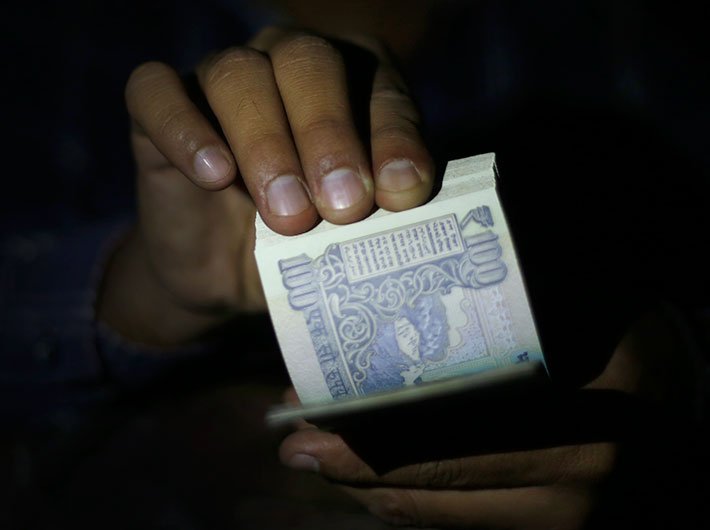Transparency International recommends encouraging free speech, independent media, political dissent and an open and engaged civil society
India is faring worse and worse on Transparency International’s ‘Corruption Perception Index’: the latest for 2017 shows India ranking a poor 81 (placed between Ghana and Morocco) and the same 40 points out of 100 as the previous year.
In 2015 and 2014, the number stood at 38 and in the previous two years it was 36. India's rank meanwhile has gone down 76 in 2015 to 79 in 2016, and further.
For detailed data sheets, check the Transparency website here.
On India, the report notes:
“Unfortunately, the results from the 2017 index also show that corruption in many countries is still strong. Often, when individuals dare to challenge the status quo, they suffer the consequences. In some countries across the region, journalists, activists, opposition leaders and even staff of law enforcement or watchdog agencies are threatened, and in the worst cases, even murdered.
“Philippines, India and the Maldives are among the worst regional offenders in this respect. These countries score high for corruption and have fewer press freedoms and higher numbers of journalist deaths. In the last six years, 15 journalists working on corruption stories in these countries were murdered, as reported by the Committee to Protect Journalists (CPJ).”
That gives a broad picture. Now, the question is what needs to be done. Here is what Transparency International recommends:
Top Five Recommendations
“Our first-hand experience working in more than 100 countries around the world shows that activists and media are vital to combatting corruption. As such, Transparency International calls on the global community to take the following actions to curb corruption:
• Governments and businesses must do more to encourage free speech, independent media, political dissent and an open and engaged civil society.
• Governments should minimise regulations on media, including traditional and new media, and ensure that journalists can work without fear of repression or violence. In addition, international donors should consider press freedom relevant to development aid or access to international organisations.
• Civil society and governments should promote laws that focus on access to information. This access helps enhance transparency and accountability while reducing opportunities for corruption. It is important, however, for governments to not only invest in an appropriate legal framework for such laws, but also commit to their implementation.
• Activists and governments should take advantage of the momentum generated by the United Nations Sustainable Development Goals (SDGs) to advocate and push for reforms at the national and global level. Specifically, governments must ensure access to information and the protection of fundamental freedoms and align these to international agreements and best practices.
• Governments and businesses should proactively disclose relevant public interest information in open data formats. Proactive disclosure of relevant data, including government budgets, company ownership, public procurement and political party finances allows journalists, civil society and affected communities to identify patterns of corrupt conduct more efficiently.
Call to action
"This year’s results show slow and imperfect progress across the Asia Pacific region. Many countries face substantially different issues in their efforts to curb corruption. While corruption continues to be a rampant problem across the region, improvements will only be made if there is strong political will for change and if a comprehensive strategy is adopted, not one based on isolated actions. An effective strategy should include:
• Putting in place laws and institutions that will prevent corruption from happening in the first place. Legal frameworks and access to information are essential components of a healthy political system where citizens can play a role in demanding accountability and preventing corruption. Whistleblower protection mechanisms and autonomous, well-resourced anti-corruption agencies are also a must in the Asia Pacific region.
• Reducing impunity for the corrupt. Professional and independent justice systems are necessary where police and prosecutors can respond to technical criteria and not political power plays.
• Improving space for civil society to speak out. Governments should ensure that activists can speak freely throughout the region without fear of retaliation.
• Improving integrity and values. Schools and universities should educate youth about ethics and values. Corporations should promote business integrity in the private sector and make these ideals more mainstream.
"Rather than focus solely on scores, rankings and methods, countries across the region should decide where to make substantial changes that will bring about real improvements in their countries. A comprehensive approach is necessary, otherwise in the coming year governments will continue to make only marginal improvements at best or deteriorations at worst."
